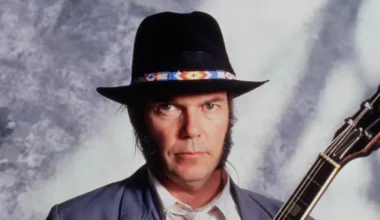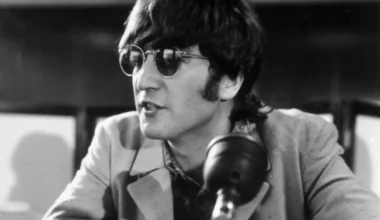Pete Townshend, the guitarist of The Who, once famously stated that while rock ‘n’ roll may not provide solutions to your problems, it does offer a way to dance all over them. There is a profound depth beyond the brevity of the statement. With just 17 words, Townsend managed to capture the essence of a cultural movement in a concise sentence. Pete Townshend characterizes his contribution to the music world with a sharp and concise style. His contributions to The Who were frequently concise, direct, and unapologetically candid. With this single sentence, he effortlessly captures the reader’s curiosity.
Ultimately, rock ‘n’ roll emerged as a means to embrace joyous freedom in the face of the challenges faced by the pioneers of the blues. Townshend has maintained that same spirit. Listening to ‘Baba O’Riley‘ instantly frees your mind from any worries. The captivating introduction has the ability to shake the very core of your mind, compelling your hips to move to its irresistible rhythm.
When it comes to the individuals who have inspired his dance moves, Townshend tends to keep quite reserved. After all, it’s not very cool to suck up. He excels in iconoclastic criticism. “When you listen to the instrumental tracks of The Beatles without their vocals, they’re quite disappointing,” he once remarked. Regarding Led Zeppelin, his opinion was clear. “I have no appreciation for any of their work and I strongly dislike being compared to them in any way.” Townshend has seldom hesitated to speak his mind, even if it means disrupting the harmony.
However, his praise becomes even more remarkable when he proclaims a song to be a flawless masterpiece. “I have great admiration for Brian Wilson,” Townshend once expressed about The Beach Boys’ leader. There are very few individuals I would make such a statement about. I believe he is an incredibly talented individual. I have such strong feelings for him that it’s incredibly overwhelming – it’s difficult for me to cope with. ‘God Only Knows’ is a beautifully crafted piece of music that captivated listeners when it was first released, and continues to be a flawless masterpiece.
It was a song that had a profound impact on the music industry; The Who, like many other musicians, experienced a transformative moment with this track. Regarding the song’s impact, Townshend shared his thoughts in an interview with Guitar Player. He mentioned how in 1966, the Beach Boys made a significant shift with their album “Pet Sounds.” This marked a major transformation for the band, as they moved away from their earlier surf music style, which was more light-hearted and focused on the beach and the California lifestyle. It was all about banishing our sorrows!
The cloud-shifting music was truly magnificent, showcasing The Beach Boys’ ability to bring a keyless complexity to pop music. Their mindbending innovation essentially made it Baroque. The band from California managed to create something that proved to be quite elusive for The Who guitarist. Brian Wilson possessed a unique and unconventional harmonic sensibility. “God Only Knows” is an absolute masterpiece,” Townshend exclaimed.
Additionally, I believe that with “I Can See for Miles,” the task was not necessarily to match Brian Wilson’s harmonic sensibility, but rather to establish a fresh benchmark. Instead of limiting ourselves to three-part harmony, let’s explore the possibilities of five-part harmony and observe the outcome.
Townshend not only appreciated the beauty of the record, but also understood its significance. “I grew up with my father, who was a saxophone player in a post-war dance band,” Pete Townshend reflected, reminiscing about the experiences that shaped his musical identity. He understood the purpose of his music. It was meant for the post-war era and for dancing with a woman who could potentially become your life partner. He described it as being centered around romance, dreams, and fantasy,” he shared with Apple Music.
Continuing: “Music still holds a much deeper meaning even in today’s world. The role of music has evolved to provide us with insights into the world around us and our own inner experiences. As a result, the responsibilities and objectives of music creators have undergone significant changes. […] And I believe I was the first to express that and attempt to clarify it. And a spark of curiosity from Mr. Wilson partially illuminated this discovery. Fortunately, it is still thriving at the moment.








